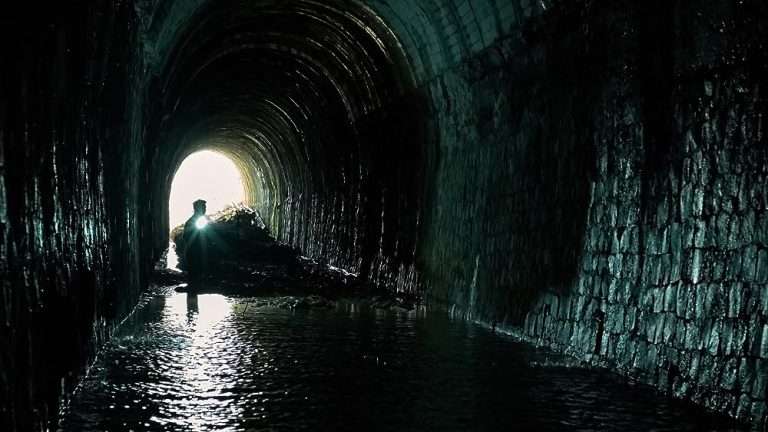Certain movie directors have a brand attached to them, with specific traits and qualities that viewers can expect to see when watching one of their movies. One such director is M. Night Shyamalan. Since 1999’s blockbuster “The Sixth Sense,” seeing Shyamalan’s name on a movie poster means that you’re to get a psychological thriller with a high concept premise, supernatural and fantastical elements, a third-act twist that would be clever if it didn’t undo all of the movie that came before, a playfully Hitchcockian control over suspense and atmosphere, and awkward, expository-heavy dialogue.
“The Watchers,” the debut feature of Ishana Night Shyamalan, M. Night’s daughter, suggests that the apple does not fall from the tree. One might even be foreign for mistakenly thinking that M. Night Shyamalan himself directed “The Watchers.” All the elements I listed above are present in the movie, from the third-act twist to clunky dialogue.
Yet, despite the movie’s similarity to her famous father’s work, there is evidence within “The Watchers” to suggest that Shyamalan has a genuine knack for filmmaking that could be honed into something special. She works well with cinematographer Eli Arenson (“Lamb”), creating fairy-tale images of the Irish forest, which serves as the movie’s central setting, and demonstrates knowledge of how to create a tense atmosphere in the film. Within “The Watchers,” there lurks a good movie and a good director, and its falterings reveal a filmmaker who has not yet fully developed her own distinctive voice.

“The Watchers,” based on the 2022 novel by A.M. Shine, begins with a lot of promise and intrigue, building off a premise that would feel right at home as a “Twilight Zone” episode. Dakota Fanning stars as Mina, a broody American working at a pet shop in Galway, vaping and running away from the trauma of her mother’s death when she was a child. Fanning is a winning screen presence with the ability to get an audience on her side with minimal effort. She is compelling in her silence, pulling the viewer in and compelling them to figure out what Mina is thinking about. Sent to deliver a bird to a customer in Belfast, Mina’s car breaks down in a deep and remote forest like any good vehicle in a horror movie.
Mina has barely taken forty steps away from her car when the forest seems to swallow her up. She turns around and is lost, unable to find her way back to her vehicle. Trudging through the forest, searching for any way out, Mina stumbles upon a bunker that would resemble a fallout shelter if not for the fact that one of the walls is a two-way mirror.
The bunker has three inhabitants, people who also once been lost in the forest: the professorial Madeline (Olwen Fouéré), the nervy David (Oliver Finnegan), and the dreamy dancer Ciara (Georgina Campbell). Ciara’s husband, John, left the bunker six days ago and has not yet returned. Quickly, the three relay the rules of the dwelling, nicknamed ‘The Coop,’ to Mina: if you are outside of the Coop after nightfall, you will not survive. You must spend each night standing in front of the Coop’s mirror wall for mysterious creatures called ‘The Watchers’ to observe. The four constitute a form of entertainment for The Watchers, a sort of in-person reality television.
That’s certainly a compelling premise, one that sends the mind racing with questions and possibilities. The problem with a high-concept premise, especially one built entirely around its hook as “The Watchers,” is that they are difficult to expand beyond their one-sentence elevator pitch. ”The Watchers” is unable to do just that. As Mina uncovers more and more information about The Watchers, the atmosphere of mystery is lessened, and the movie becomes less involving. None of the answers provided by Shyamalan are as fulfilling as an audience member could imagine.
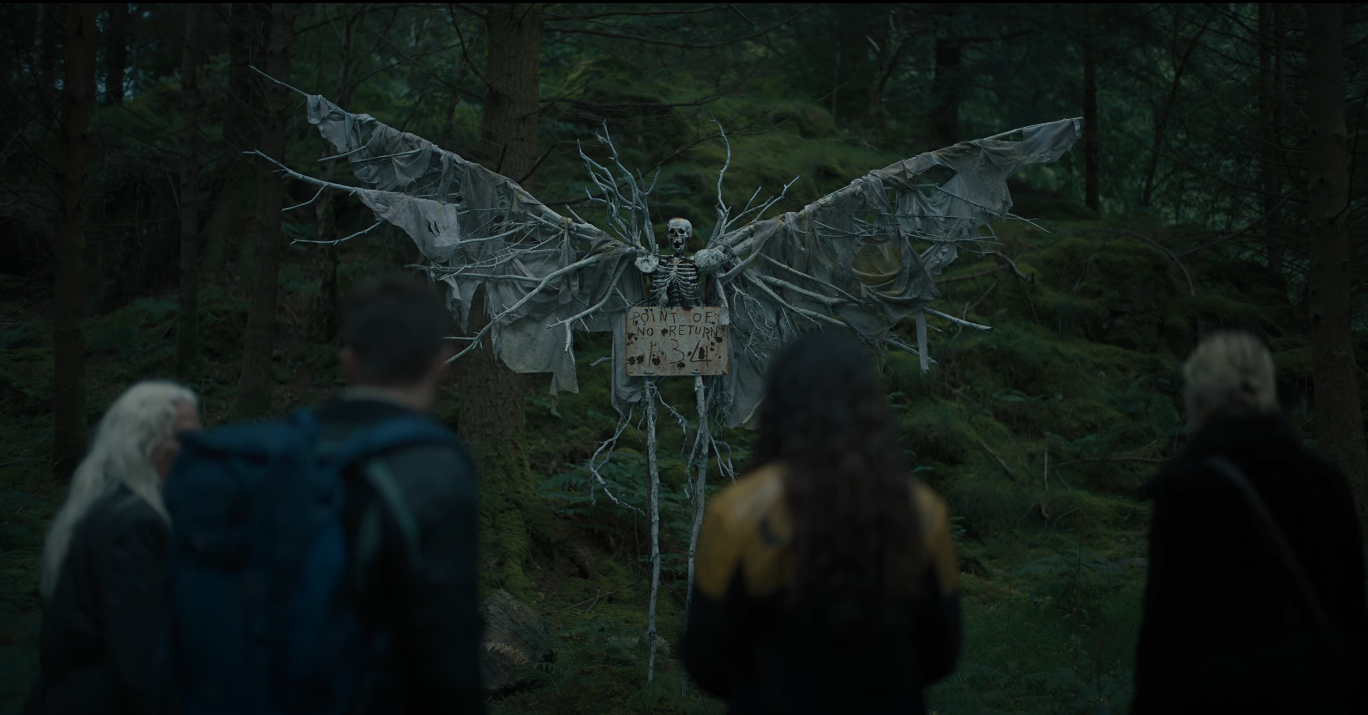
Standing in the woods at night, it’s more terrifying to hear the rustling of a bush and imagine all sorts of dangers lurking around than to see a raccoon passing by. As Alfred Hitchcock said, “There is no terror in the bang, only in the anticipation of it.” “The Watchers” does not understand that simple philosophy of horror, and so quickly, its premise, built entirely around what cannot be seen and unknown, is stretched paper thin. Perhaps “The Watchers” would have served better as a short film.
The characters exist only in service of the premise, flatly written using broad strokes and speaking almost entirely in exposition. There is nothing of human nature in “The Watchers, no resemblance to anything close to recognizable human behavior, no emotional truth. The screenplay does not feature even a glimmer of interest in how a living, breathing person would react to the isolation of living in a small bunker under the constant threat of mysterious creatures.
The Coop is outfitted with only a table, a couch, DVDs of a “Love Island”-type reality show to watch on an old TV set and a bucket for a bathroom. It seems that the only food to eat is what Mina, Madeline, David, and Ciara could gather in the forest, and there is no place to wash and no clothes available to change. How does the human spirit respond to living in such conditions for months on end? “The Watchers” has no idea; please don’t ask.
“The Watchers” is beautifully filmed, the nighttime scenes are well-lit and eerily shadowed, and the compositions are like something out of illustrations in a Grimm’s Fairy Tale book. While the images carry a fairy tale tinge throughout the entire movie, it is during the last act that “The Watchers” shifts entirely from horror to fairy tale. The shift doesn’t entirely work, as the true fairy tale elements were introduced too far in order to truly convince, and the horror elements, which were so effective and prevalent at the beginning, nearly disappear completely. The beauty in the atmosphere and images of the movie speak to a director with talent, but the lack of balance in the tone reveals one not fully in control of one’s craft. More than anything, as the credits rolled on “The Watchers,” I was excited about what Ishana Night Shyalaman would direct next.



![Citizenfour [2014] Review: Paranoia-Inducing Edward Snowden Revelations](https://79468c92.delivery.rocketcdn.me/wp-content/uploads/2019/02/Citizenfour_HOF-768x420.jpg)
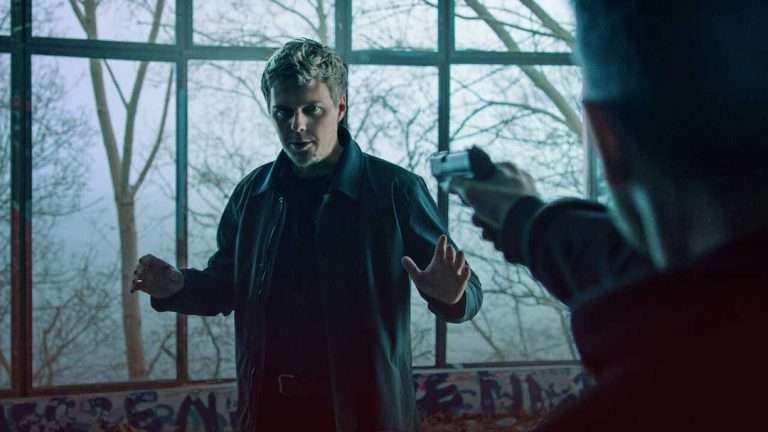
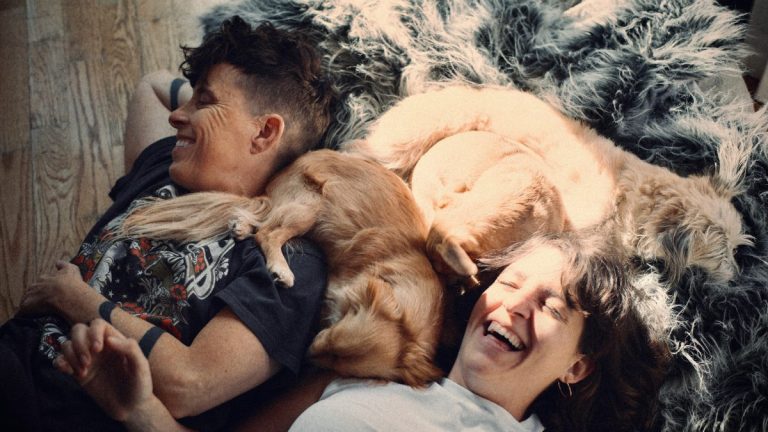
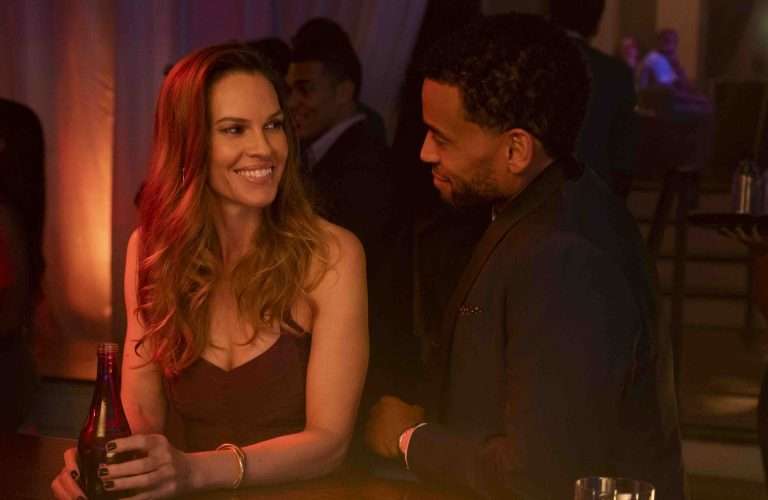
![Repast [1951] Review – A Wonderfully Subtle Marital Strife Drama](https://79468c92.delivery.rocketcdn.me/wp-content/uploads/2020/11/Repast-1951-768x432.jpg)
